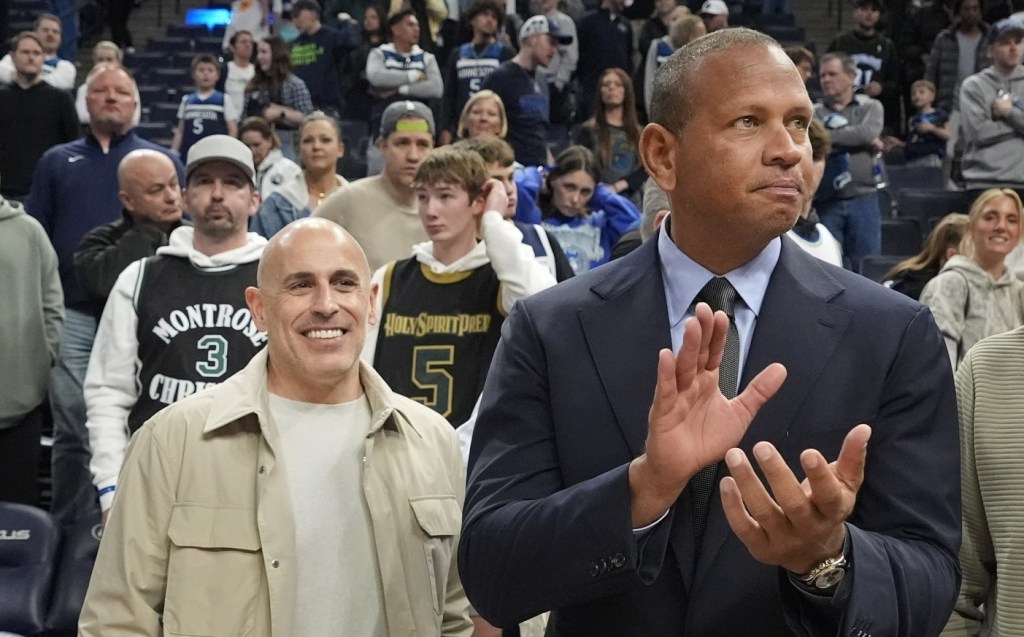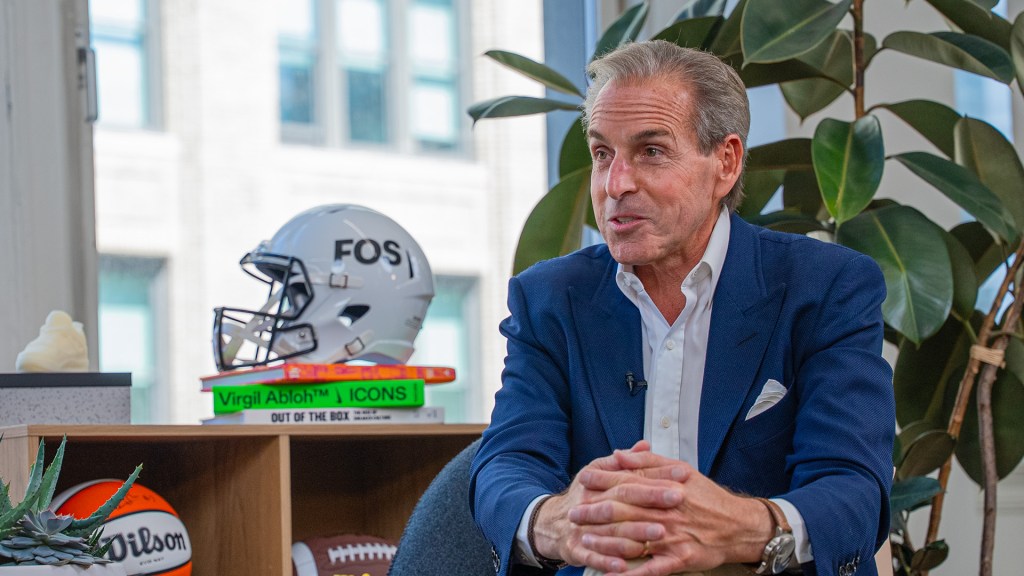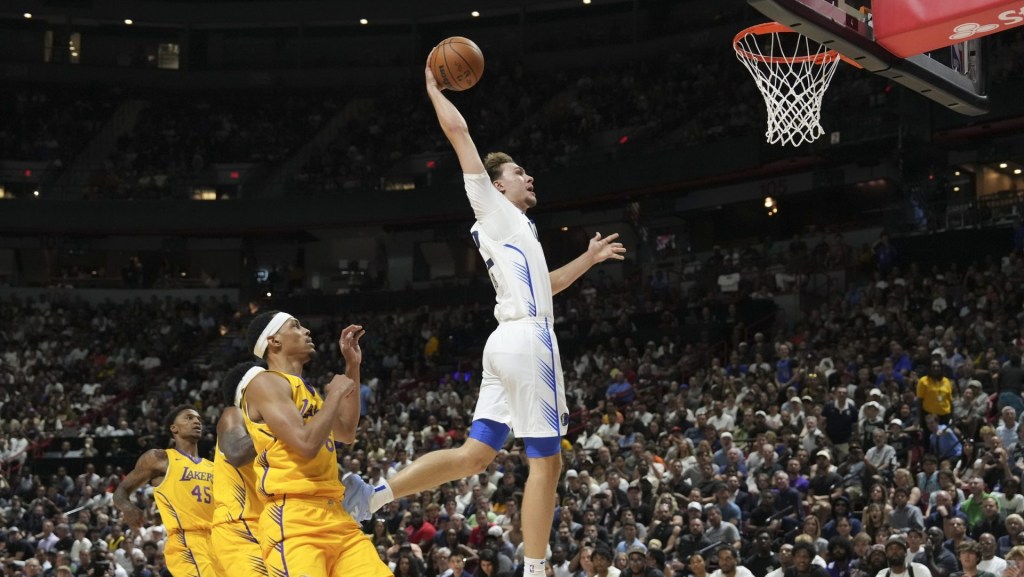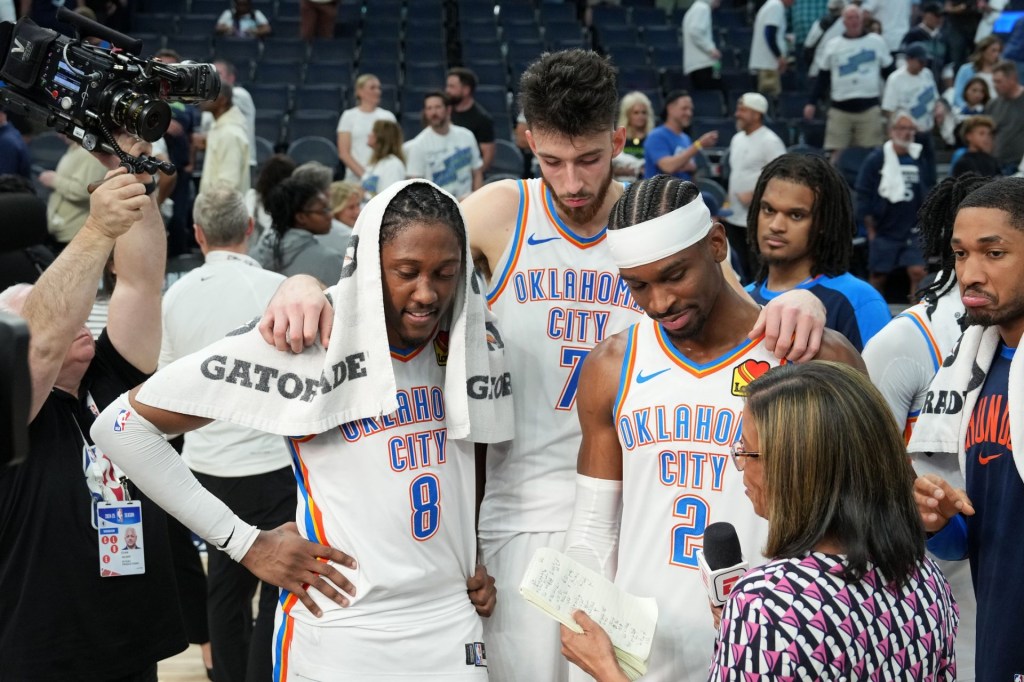The coronavirus pandemic has made its mark throughout the world. No one has been immune to its damage, and the sports industry is a prime example.
If there were one positive to emerge from these past several months, it would be the sudden emergence of remote work in sports. Until now, the idea of working from home was largely taboo – especially in a networking and relationships-focused field like sports.
Since the NBA shut down on March 12, most if not all people working in sports have been working not from the office, but from their home. According to data from research firm Gartner, the percentage of workers who have never worked remotely has plateaued from 70% to 52% since the coronavirus pandemic. In that timespan, the percentage of employees who either work remotely sometimes or always has since risen to 29% and 19%, respectively, meaning that 48% of employees nationwide currently work from home in some capacity.
Even with the rapid rise of remote work, its long-term future in sports remains unclear. While tech companies like Facebook and Twitter have vocalized their efforts at maintaining a work-from-home option for their thousands of employees, no professional sports organization has made similar proclamations.
In a survey from the Society for Human Resource Management (SHRM) and advisory firm Oxford Economics, 3% of 1,000 United States-based HR professionals were asked about their thoughts on the remote-work trend when the coronavirus crisis subsides. All but 5% said that they expect their workforce to return to pre-coronavirus levels within the next six months.
Front Office Sports reached out to numerous high-ranking sports executives about their thoughts on the industry’s sudden embrace of remote work – and what its future looks like within their companies.
The following responses have been lightly edited for clarity.
Kevin Cote, Facebook director of sports partnerships – teams and athletes
How has this work-from-home process affected your leadership skills, if at all?
It’s about really having empathy for what everyone has going on in their life. There are so many different scenarios and everyone has their own set of challenges through this process. I think this period has just created more empathy for all of us to understand that everyone has something going on in their life.
So as a leader, I need to recognize that individually, one-on-one, in bigger group settings – that everyone knows they’re not alone in this. There are opportunities to vent about what isn’t going right and how we ultimately can help each other solve problems.”
Has this experience changed your views on WFH or how you manage your team?
I do think it has opened a lot of eyes – both with us and within the industry – of what is possible and how to be efficient in how to use technology in a powerful way, because we know technology is not going to slow down. This is only going to become more of the norm, I would say. Maybe that doesn’t mean 100% remote work, but at least the acknowledgement that it is possible when you trust your employees, when you have driven employees, and when you have people with clear direction and clear goals. That’s the key: that it’s possible to be highly functioning even in a remote environment.
READ MORE: Work From Home Finding A Role In The Sports Business World
Luka Dukich, Chicago Bulls director of content
What have been some challenges that have arisen since WFH?
The biggest thing you lose when you’re working from home is not being able to be physically in the same room to build on ideas and brainstorms. We’ve done a good job of doing this via text and video chats but you lose the ability to build off each other and the natural energy of being in the same room. We’ve done a good job of continuing collaboration given the circumstances but that’s definitely something you miss. Also, frankly, a big part of what I love about this job is the people and relationships you develop – you’re spending a lot of time and late nights with the people around you, and they start to feel like more than just coworkers. So I miss seeing everybody each day and being able to just have that human interaction.
Conversely, what are some successes that have come from WFH?
I think we’ve had to get a little bit more creative in some ways and talk things through a little bit more than we usually would. Whereas sometimes, we might discuss an idea and then start working on it, this has made us have to stop, write it down, and over communicate – I think in that way it’s forced us to be a little more buttoned up in our planning process and get ahead of things in ways we weren’t necessarily forced to before, when you could just turn to your left and align with your coworkers. It’s also been nice to be able to control your own schedule a bit!
Has this experience changed your views on WFH or how you manage your team?
I don’t think it’s totally changed my views – our team has always been relatively flexible about letting folks WFH if it made sense for their schedule – but it’s definitely cemented the fact that we can still be productive while working from home, we can still collaborate and we can still be a team. The other groups in our organization were quick to adapt to Slack/Teams and work with us efficiently as well. Listen, they haven’t turned the Internet off yet, so we’re still able to do a lot of the same things that we could do from the office! The one exception is, obviously, we’re an events business, in that a big part of our job is being around the team, the games and everything that comes along with it, the practices and day-to-day of a team, and all that stuff wouldn’t be the same doing from home. But everything outside of that, we’ve been able to adjust well.
Mark Fine, BSE vice president of team marketing
What have been some challenges that have arisen since WFH?
There have been a few challenges we have all had to tackle since we began working from home. One example is that some of us are parents and are now having to balance a full workload along with overseeing and teaching our children during the school week. As a parent, I certainly understand that we have many responsibilities, and have encouraged employees with children to work with flexibility and to voice if and when they need assistance on projects as needed. From a marketing standpoint, one of the challenges we are facing is how we are reshaping the way we approach and interact with our fans. While initiatives and company-wide priorities have shifted, we have had to re-tool the way we engage our fans virtually instead of in-person.
Conversely, what are some successes that have come from WFH?
Overall I feel as if we are communicating more effectively and efficiently as a group. We’re speaking to each other, cross-collaborating with other departments, and speaking to teams from across the world and the communication has been both educational and fun. In some ways, although this is not an ideal situation, the whole experience has built a better sense of camaraderie for our department, since we are all experiencing the same thing together. We have made some of our department meetings more lighthearted and it’s helped employees get to know one another on a more personal level, outside of the workplace.
Has this experience changed your views on WFH or how you manage your team?
Although working from home has required adjustments, I believe we are making it work and continuing to work productively and efficiently. During my time with the Harlem Globetrotters, I managed a department of individuals who worked remote all across the country, and we were successful in operating that way. I believe if managed properly, individuals working from home can still be as productive as they would be working in an office environment, especially by incorporating tools to help you visually engage with your colleagues, like Zoom or Skype, however, there are still benefits to being in an office environment and interacting with people in-person that working remotely does not provide.
READ MORE: Digital, Social Media Talent Adjusting To Work From Home
Steven Goldfried, Houston Rockets director of digital content strategy
What have been some challenges that have arisen since WFH?
The biggest challenge is just not having games. That built-in drama with the storylines of games, individual players, and the whole season is gone so we’ve had to really get creative with our content and put forth new features and new ideas. It’s actually pretty fun to try different things that we might not have had time for during the season, but we all miss basketball.
Conversely, what are some successes that have come from WFH?
Along those same lines, the successes are that we’ve been able to do some new and different things and they’re resonating with our fans and partners. For example, our trainer series is now sponsored by Gatorade so that was an organic idea that turned into something we are monetizing. To that end, we’ve added partners to about 15 of our regular hiatus features and we’ve participated in countless community events and initiatives with them as well. The biggest success over this time is probably how we’ve been able to give back to frontline workers and first responders, even if it’s just a small gesture like providing an Easter or Mother’s Day meal, or just Tacos every Tuesday to different groups like Metro employees, the national guard, or the Houston Police and Fire Departments.
Has this experience changed your views on WFH or how you manage your team? Has it affected your leadership skills, if at all?
I don’t think there’s been too much effect. Our digital group is actually somewhat used to working from home, at least to some extent. Road games come to mind as a great example. We’re actually looking at this in some ways as a use case for how effective we can be as individuals and a group working remotely. We have a good group of hard working and creative people and we all trust each other to get the job done individually and collectively.
We’re always in contact with each other anyway and at least for our digital group, as long as we have our phones and laptops, we can pretty much work from anywhere.
Brandon Jirousek, Cleveland Cavaliers vice president of digital and web services
What have been some challenges that have arisen since WFH?
Truly the biggest challenge we have run into is home internet as it relates to larger file sizes and the strain on bandwidth where team members have their significant others also working from home and/or kids using iPads, etc.
Conversely, what are some successes that have come from WFH?
With an emphasis on increased communication across groups, we have seen successes with content releases such as our “At Home” series where we worked with our Youth Sports, Basketball Operations, Game Entertainment, and Partnership Team to release a robust 8-week schedule of basketball drills, healthy recipes and other activities to do at home. We also recently released a new feature within our app that was developed in collaboration with Yinzcam (our app provider) and 15 other NBA teams, offering fans a source of distraction during our hiatus.
Has this experience changed your views on WFH or how you manage your team?
This experience hasn’t necessarily changed my view on working remotely since my team has had that ability as I described above, but more so has reinforced our adoption of collaborative products, such as Microsoft Teams, and the need for consistent communication across the group. It also emphasizes the importance of a reliable internet connection.
Brian Kropp, Garnter group vice president
What have been some challenges that have arisen since WFH?
As you think about one-on-one conversations, status updates, team meetings, a lot of that can be done remote, but there are a set of things that we’re finding that no matter how good the remote technology is, you’re better off being together.
For example, you can do a lot of communication sharing via video calls, but it’s harder to actually be collaborative during those sessions because that collaboration often involves a lot of one-on-one and back-and-forth sorts of stuff. You have to look at what are the things where collaboration is hard to do remotely versus in person.
In the sports world, a lot of the things around building game plans might be hard to do remotely, or reviewing video and going back and forth on video where just getting people to the right part, looking at the right stuff was hard. Those collaboration moments between coaches and players – you can kind of do it on video, but it’s probably better in person from that perspective.
Conversely, what are some successes that have come from WFH?
By having employees work remotely, you actually have a safer workplace because you’ve got more social distancing, less interaction amongst people. From a safety perspective, because of the coronavirus, that’s a good thing.
Long-term, there’s two things that are really important. One is employees who work remote, generally speaking, really like the flexibility of working remote. They like not having to worry about commuting. They like that they can work different hours when it makes sense for them, etc., so the flexibility associated with working remotely is really desired by employees.
And then, if you’re the CFO of an organization, it’s actually cheaper to have employees work remotely from a real estate cost, a savings perspective, etc. because you can have fewer people coming into the workspace, which means you actually need a smaller workspace. You’re going to consume less electricity at work.
As those people are working from home, you’re going to need less cleaning costs because you’ve got people working from home rather than coming to the office. All of those sorts of real estate footprint costs are really valuable so, for an average employee who moves to working remote.
As we’ve talked to CFOs, their best estimate is that you can essentially save up to about 20% of the total cost of that employee if they’re working remote versus coming into a workplace. Those are real savings that are out there by having employees work remotely.
Has this experience changed your views on WFH or how you manage your team?
A year or so ago, you could go in and talk to a whole bunch of business leaders and you’d ask them about the question of working remotely, and at least half of them would say, ‘my employees that work remote, they spend half their time sitting on the couch, eating pizza and watching TV, and maybe take a couple of naps during the afternoon. If they’re not here, they’re not working.’
What companies have really found out – and what the vast majority of executives now believe – is that for lots of jobs, not necessarily all of them, but for lots of jobs, people who are working from home can be just as productive as those who aren’t. We have to adjust how we work, what we do when we do it, all those sorts of things, but you can be productive working from home.
Even if you’re 5% less productive, the cost savings are so much worth it that the ROI is higher than having people come into the workplace in a lot of cases.
READ MORE: Sports Leaders Learn To Run Companies Remotely
Erika Nardini, Barstool Sports CEO
What have been some challenges that have arisen since WFH?
I think it’s tedious being from home. The vast majority of our team is in New York City in their twenties, so they either live with somebody else from Barstool – which is actually pretty fortunate or they live alone – which is kind of alienating right now. In terms of production, we have the usual stuff that plagues Barstool. The internet never works for unboxing, and we had too many packages sitting in too many places for too long – so stuff like that, the usual production headaches. But I do feel like we were able to take what we had and the platforms available to us and to make things pretty successfully. The production hiccups are just part of the charm sometimes.
Conversely, what are some successes that have come from WFH?
When the quarantine happened or when the shutdown happened, we were a week and a half away from going on our first tour of Penn Properties, doing college basketball and March Madness.
I feel like we’ve adjusted as best we can, and the things that I’m most excited about are the content. I’m always excited about Barstool content, but I’ve been really excited about the content we’re making right now because I think it’s really imaginative.
I think we’ve made sports when there haven’t been any sports. I think you’ve really seen personality shine through. I think you’ve seen a company that only has social media and a blog and it’s podcast and its own content to make its brand. I think you’re seeing us put all of that to work without really missing a beat. We shut the office on a Thursday or Friday – by Monday we had all of our radio live. We’re doing, I would say, 10 hours of streaming a day. We had our Snapchat shows live, so we’ve just moved the whole thing to be remote. We know people need and want content right now and we feel very responsible for delivering it to them.
Has this experience changed your views on WFH or how you manage your team?
No – I can’t wait to get back to the office. I think what has changed is we’re doing so much more on Twitch. We’re doing so much more on TikTok. We’re doing so much more on Instagram Live. Instead of doing shows that we’re shooting and releasing, we’re going live on big social platforms. I think that’s here to stay – we were on our way to becoming a really video-led company, and we’re becoming even more of a video-led company right now.
READ MORE: PGA Tour Exec Expects Remote Work To Play On In Future Years
Kirsten Sabia, PGA Tour vice president of integrated communications
What have been some challenges that have arisen since WFH?
Number one, the mute button. We are sure many can relate. Secondly, the inordinate amount of calls versus email. In all seriousness, we have been pleasantly surprised with the transition and there are less challenges than we would have expected. Of course, the stoppage of our business has been the biggest challenge although we look forward to returning to play the week of June 7. Another challenge is the transition we face as we prepare for the opening of our new Global Home in January 2021. The eventual return to our existing buildings in 2020, some of which are 40+ years old, will be slow for various density and building inadequacy.
Conversely, what are some successes that have come from WFH?
Our employees have demonstrated their nimbleness in adapting to this extended WFH situation. We have been more inclusive in a lot of cases, where we are not restricted by meeting space or availability. More employees have had a voice thanks to the chat functionality in Teams meetings. Microsoft could look at the TOUR as a poster child.
Has this experience changed your views on WFH or how you manage your team?
100%. For the previous doubters, we have been able to demonstrate it is doable. But of course, we must continue to be vigilant in respect to out of sight, out of mind as we become bogged down in all of the needs to be met to return to business as usual.
















